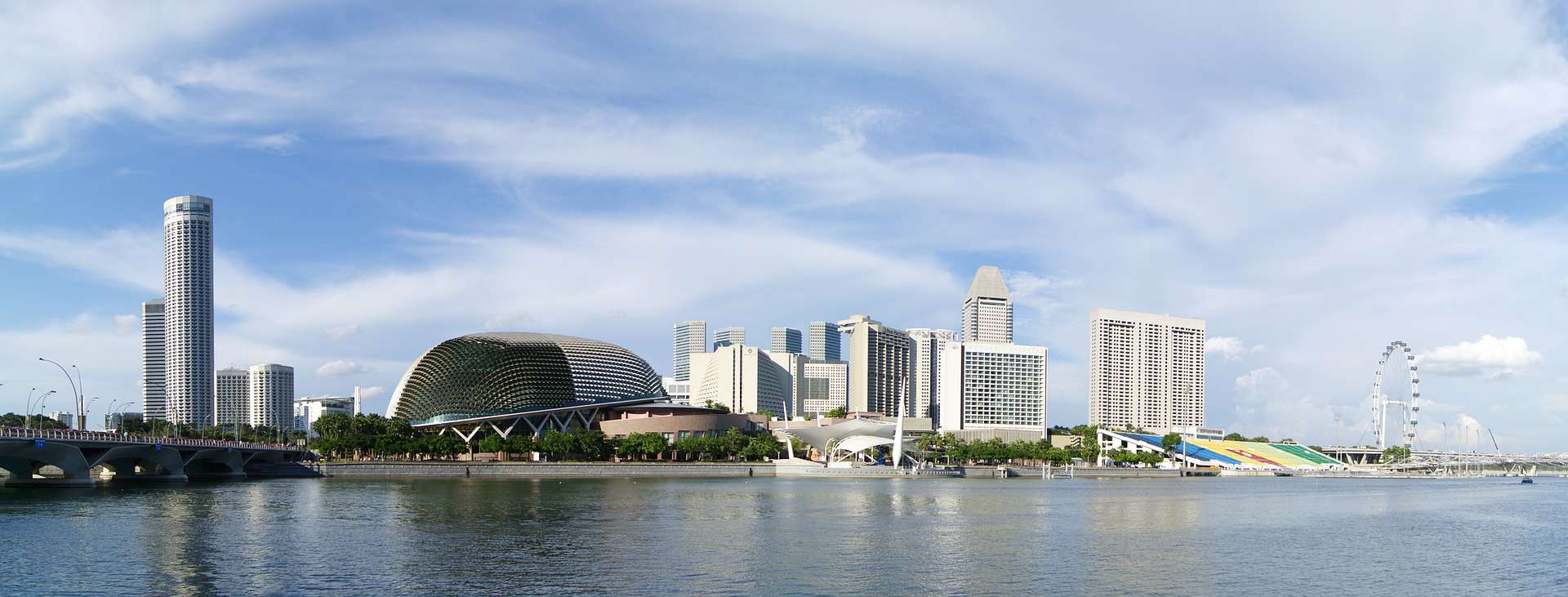How to Register a Company in Singapore
There are many things to consider when you are starting a business—location, business plan, market size, legal requirements, incorporation process to name a few. Singapore satisfies most, if not all, of the consideration points for starting a business. As the world’s easiest place to conduct a business, local and foreign entrepreneurs will find it highly beneficial to establish a business in Singapore.
With its strategic geographical location, effective tax system, hardworking professional workforce, eased company registration process and political and economic stability, there is no doubt that Singapore is a viable location for business ventures. This article will provide you with a basic guide on how to register a business in Singapore.
Choosing a Suitable Business Structure
This is one of the first decisions you will make as an entrepreneur. The key factors that you should take into consideration are tax implications, the level of personal liability, statutory requirements, incorporation costs, and your ability to generate funds for the business. In Singapore, you may register a Sole Proprietorship, Partnership, Limited Liability Partnership, Limited Partnership or a Private Limited Company.
The most preferred business entity in Singapore is Private Limited Company mainly driven by the advantages it offers to individuals and entities. Shareholders can enjoy limited liability and will not be held liable for any debt the company may incur. One can incorporate a Private Limited Company with minimal requirements of at least one local Company Director and at least one shareholder. More so, there can be a maximum of 50 shareholders which will allow individuals and entities to generate more fund for the business.
The governing body that monitors and processes requirements based on Singapore’s Companies Act is the Accounting & Corporate Regulatory Authority (ACRA). All new businesses must be registered with ACRA regardless of the business structure.
Pre-Registration of your Singapore Company
How do I prepare for my company registration?
In order to ensure a smooth Singapore company registration, it is important to be prepared. Here’s everything you need to know pre-registration.
• Company Name. The first step in company registration is name approval. All company names must be approved by ACRA before it can be registered. The process is relatively quick and easy given that your proposed company name is unique, is not a duplicate of an existing company name, does contain profanity and vulgar words, and is not reserved by another entity. Otherwise, you will need to have another company name approved. Are you still in the ideation phase of choosing a business name? You might find these tips in crafting the right business name helpful.
• Company Director. You must appoint at least one Company Director who is ordinarily resident in Singapore. The local Company Director can be a Singapore Citizen, Permanent Resident, or a holder of Employment Pass, Dependant Pass, or EntrePass. All Company Directors that will be appointed must be at least 18 years old, have no record of fraud, malpractice or bankruptcy. In case you require a qualified local Company Director, we provide Nominee Director Services solely for the purpose of fulfilling this statutory requirement.
• Shareholder. While Private Limited Companies can have a maximum of 50 Shareholders, only 1 Shareholder is required to register your business. Note the Company Director can also function as a Shareholder.
• Paid-up capital. Also known as share capital, this refers to the amount of capital funded by the shareholders. The minimum paid-up capital needed to register a business in Singapore is S$1.
• Registered Office Address. Considered as the official place of business, the main purpose of having a Registered Office Address is to have an avenue for the Government to send notices and for the public can access the office if they need to deliver parcels, take a look at company records, and such. The registered premise should be open for business and accessible to public for at least three (3) hours during official business hours of weekdays. P.O. Boxes cannot be considered as a Registered Office Address. The Home Office Scheme allows qualified businesses to register a residential property for this purpose. We offer Registered Office Address Services that include the receipt and handling of all your official business correspondence.
• Company Secretary. All companies in Singapore are required to appoint a qualified Company Secretary within 6 months after incorporation. Appointing a qualified, skilled Company Secretary is, without a doubt, an investment for your business. Learn more about the qualifications, roles and responsibilities of a Singapore Company Secretary. If you avail of our Singapore Incorporation Package at S$600 for individual shareholders and $800 for corporate shareholders, you will be entitled to FREE 1 full year of secretarial services.
Singapore Company Registration Proper
How do I register a company in Singapore?
Local entrepreneurs may choose to register their business personally or seek the assistance of a professional service provider. Seeking the assistance of a professional firm may prove to be more convenient as it provides hassle-free registration process and allows you to focus more on other business matters—as starting a business can be both exciting and taxing. For foreign individuals and entities, it is necessary to appoint a professional firm to register a company.
We offer a wide range of corporate solutions including company formation, secretarial, accounting and tax services. We can incorporate your business in two (2) hours once all the needed information and required documents are provided to us.
Here are the information you need to provide in order for us to process your company registration:
• Proposed Company Name
• Main Activities of the Company
• Share Capital indicating the amount of paid-up capital and Issue price per share.
• Registered Office Address
• Particulars of the Company Directors including the Company Directors’ Name, NRIC/Passport Number, Address, Contact Numbers, and E-mail Address.
• Shareholders’ Information including the Shareholders’ Name, NRIC/Passport Number, Address, and Shares Allocated.
The following documents are required from the Company Directors and Shareholders:
• Company Director. Local Company Directors must provide a photocopy of an identity card. Foreign Company Directors, on the other hand, must provide a photocopy of an identity card, foreign home address, and passport.
• Shareholder. Local Individual Shareholders only need to provide a photocopy of an identity card. Local Corporate Shareholders must provide a certified true copy of the Business Profile along with a Letter of Appointment for Corporate Representative to sign all documents relating to the proposed incorporation.Foreign Individual Shareholders must furnish a photocopy of identity card, passport and foreign home address with a documentary proof such as driving license or utility bill. Foreign Corporate Shareholders must provide a certified true copy of Certificate of Incorporation and Business Profile translated into English (if applicable) and notarized Letter of Appointment for Corporate Representative to sign all documents relating to the proposed incorporation.
We will then prepare the incorporation documents for signing and subsequently register your business with ACRA. If you avail of our Singapore Incorporation Package at S$600 for individual shareholders and S$800 for corporate shareholders, you will be entitled to FREE 1 full year of Corporate Secretarial Services. This is an ideal set-up as we will be able to guide you through your first year of business in Singapore by ensuring that your secretarial records are well-maintained.
Post-registration of your Singapore company
What happens after my company has been successfully registered?
After the successful registration of your business, there are only a few more formalities and requirements that you must process or prepare. These include opening a corporate bank account, applying for appropriate business license or permits (if applicable), timely holding of an Annual General Meeting, registering for GST (if applicable), complying with annual filing requirements for companies, and keeping well-maintained company records.
Corporate Bank Account
The corporate bank account for newly incorporated companies can be opened soon after incorporation or at a later date. By a special arrangement with the bank officer, the corporate account can be opened once the company has been incorporated, but you are required to be physically present. The approval for the opening of the corporate account is usually given within a week, but the online token and debit card will be dispatched to the company in about 10 to 21 days. For the opening of your personal account, you may liaise directly with the bank officer at the same time. The requirements and processing fees vary from bank to bank so it’s better to do your research first before you decide which bank you’ll transact with.
Below are some of the major banking institutions in Singapore that offer corporate bank accounts along with a brief outline of basic requirements such as initial deposit, maintaining balance, and account setup fee.
| BANK | ACCOUNT TYPE | BASIC REQUIREMENTS |
|---|---|---|
| United Overseas Bank (UOB) | Current Account | Sole proprietorship, partnerships, and companies may apply for this account. Requirements include an initial deposit of S$1000. If the average daily balance of the account falls below S$10,000 in a month, a fee of S$35 will be applicable. For more information: UOB Corporate Banking fees. |
| DBS | Entrepreneur’s Account | Minimum initial deposit is S$3,000. Minimum average balance a month is S$10,000 with a fall-below fee of S$35. The business should be owned by individuals and incorporated in Singapore within the past six (6) months. Setup fee for start-ups will be waived. The setup fee for business accounts, on the other hand, costs S$30. For more information on required documents, you may check out DBS’ Business Account Checklist. |
| OCBC | Business Account for New Businesses | There is no setup fee but an initial deposit of S$3,000 is required. The minimum monthly average balance of S$5,000 otherwise, a monthly service fee of S$35 will be applicable. This account is open to all businesses that are incorporated in Singapore. Among the perks of this account is that there will be no account fee for the first 3 months and no minimum balance for the first 6 months. Visit OCBC’s website for a more comprehensive brief on requirements and application process. |
| Standard Chartered | Business$aver | Business$aver is a current account that offers high-interest rates with full liquidity, ideal for businesses with surplus funds. While there is no setup fee, an initial deposit of S$30,000 is required. An average monthly balance of S$30,000 should be maintained or S$50 monthly fee will apply. For more information on required documents and application process, visit Standard Chartered’s website. |
Business License and Permits
Only after the Singapore business registration with ACRA will an individual or entity be allowed to submit an application for a permit or license. A SingPass will also be required for applications that will be facilitated online. However, it is not required when searching for the appropriate license and permits for your business. The government agency and cost vary depending on the industry and business activity. You may choose to submit an e-application via the Online Business Licensing Services (OLBS) or directly apply at the relevant agency-in-charge.
Goods and Services Tax (GST) Registration
The Goods and Services Tax (GST) is a broad-based consumption tax levied on nearly all the supplies of services and goods in Singapore. In other countries, this is usually referred to as Value Added Tax (VAT). You have to register for GST under compulsory basis if your company has a business turnover exceeds S$1million for the past twelve (12) months or is currently generating or is expecting to generate a taxable turnover that exceeds $1 million in the next twelve (12) months. GST-registered companies must charge the said tax to services provided and goods sold to clients. Companies with an annual revenue that is lower than S$1 Million will not be required to file for GST. The government offers several GST schemes that are aimed at relieving the cash flow of qualified businesses.
Make the process of GST registration, compliance and filing more convenient by engaging our services.
Annual General Meeting
Companies incorporated in Singapore are required to hold an Annual General Meeting (AGM) and subsequently file its annual returns with ACRA. The first AGM should take place within 18 months after a company’s incorporation. One of the key points of discussion in the annual meeting is the company’s financial accounts. The Company Directors must present a clear and honest view of the firm’s accounts to its shareholders. Said accounts must be updated six (6) months before the scheduled AGM.
Bookkeeping
Keeping proper records is mandatory for any business in Singapore. Having a sound record-keeping process is essential in running a business not only for the purpose of statutory compliance but also in making important financial decisions. Among the records that a company must keep are documents of all transactions including receipts, vouchers, invoices, bank transactions or any other proof of transactions. Companies must also keep track of accounting schedules. At Richmond, we specialize in providing SMEs with a full scope of bookkeeping services on a monthly, quarterly or yearly basis. We will assign a dedicated account manager from a pool of our tax experts and you can rest assured that your books are well-maintained. You may simply contact us for a quotation of our bookkeeping service.
Estimated Chargeable Income (ECI)
Estimated Chargeable Income (ECI) refers to the estimate of a firm’s chargeable income for a specific Year of Assessment. Take note that the company’s capital gains and/or its fixed asset disposal should not be included in the ECI.
Companies in Singapore are required to provide their ECI within three (3) months before its Financial Year-end (FYE)—unless the company is given a waiver and relieved of the obligation to file an ECI. The Inland Revenue Authority of Singapore (IRAS) normally provides companies with a notification or reminder to file its ECI during the last month of its financial year. Know the basics of filing ECI on our Quick Guide on Estimated Chargeable Income (ECI).
At Richmond, we are experienced in providing competent tax services to small and medium-sized enterprises in Singapore. From providing clients with sound advice on suitable tax structures that will allow their business to improve cash flow to preparing and timely submitting clients’ ECI. Know the full scope of our services Income Tax Services or simply get in touch with us so we can schedule a free consultation with our specialists.
On A Final Note
Singapore has the most enterprise-friendly environment in the world. In order to preserve this status, the Government enforces its corporate laws stringently. Make the process of doing business in Singapore smoother by engaging our services—from the registration to the provision of corporate secretarial, accounting and tax services, you can be confident of compliance to statutory requirements.








